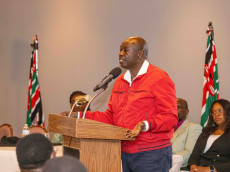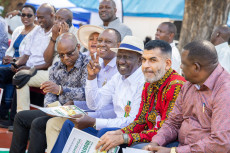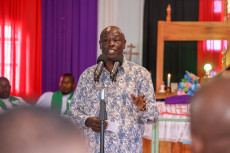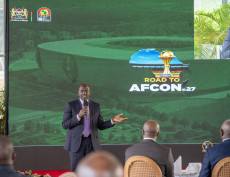- Political analyst Dr. Michael Ndonye, opines that it’s not easy to get away from a culture unless it dies with the people who built it.
As Kenya inches closer to the 2027 General Elections, the political rhetoric remains consistent: a desire to move away from ethnic-based politics. Yet, the real question is whether tribal voting patterns will still dominate the presidential race, especially now, with Gen Z emerging as a more issue-driven electorate.
Political analyst Dr. Michael Ndonye, opines that it’s not easy to get away from a culture unless it dies with the people who built it.
Kenya’s political foundation is still deeply rooted in ethnicity and tribalism, the very basis upon which regional identities were formed. Despite leaders publicly expressing a desire to shift away from these politics, the reality tells a different story.
During a discussion on the TalkChat Podcast, Dr. Ndonye traces the evolution of Kenya’s political landscape. “Around 2002, we transitioned from tribal-based to region-based politics. We began viewing leaders as representatives of their regions.” While he acknowledges a shift in mindset is underway, he’s quick to caution: “It’s not going to end.”
Even with Gen Z’s bold declaration of being “tribeless,” Dr Ndonye remains skeptical. “They belong to a different community. When they say they’re tribeless, we should wait and see.”
Read More
The introduction of counties under the 2010 Constitution didn’t erase tribal politics, it simply reshaped them.
“What we had before were provinces, which created voting blocs like Mt. Kenya and Rift Valley. Counties didn’t stray far from those regional identities. These regions have now morphed into what some call ‘nations’ like the Kalenjin nation and the Kamba Nation,” Dr Ndonye said.
Another factor that makes it hard to dissolve tribal politics is the fact that Voting blocs are still designed around these lines.
Looking ahead to 2027, Dr. Ndonye believes tribalism will remain a powerful force. “The structure of voting is still tribal. Someone registered in Western will vote there. Even in mature democracies, people vote along racial, class, and gender lines. Humans naturally gravitate toward their own conclaves and Gen Z is no exception. They have their own class.”
Some political figures, like former Chief Justice David Maraga, have distanced themselves from the idea of regional kingpinship, arguing that seeking votes from a specific region perpetuates tribal politics. But Dr. Ndonye disagrees.
“Leaders who say they won’t seek votes from the grassroots are delusional. Charity begins at home. If Maraga claims to be a national leader, then who is he leading? He’ll still need to mobilize votes from the grassroots. There’s no such thing as a purely national leader.”
Since independence, Kenya has had presidents from only two tribes; Kikuyus and Kalenjins. According to Dr Ndonye, Kikuyus wield economic power, while Kalenjins dominate through numbers. “When they come together, they produce presidents with ease.”
As for Gen Z, aligning with them isn’t enough. According to Dr Ndonye, if a presidential candidate says they’re aligning with Gen Z, it means they’re an outsider in ideology and approach.
“Every generation aligns with its own. Candidates must go beyond slogans. They need programs that resonate with Gen Z’s interests. Anyone can be their leader, as long as they speak their language,” he added.

-1757146780.jpg)
-1757146780-md.jpg)





-1757146780-sm.jpg)



